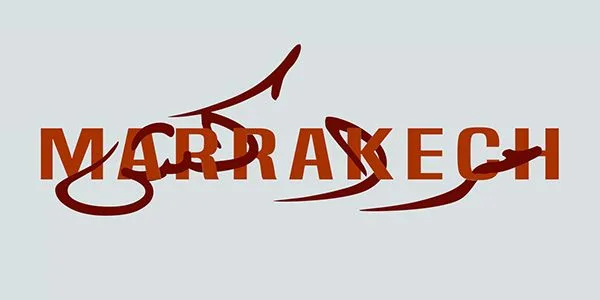
Buying Property in Morocco via Power of Attorney: Risks & Process
For many international investors, buying property in Morocco via power of attorney offers a convenient way to complete a purchase without being physically present in the country. Morocco’s property market is thriving, especially in cities like Marrakech, Casablanca, and Tangier, attracting buyers from Europe, the Middle East, and beyond. However, while the process can simplify logistics, it also comes with specific risks and legal considerations that must be understood before moving forward.
What Is a Power of Attorney in Moroccan Real Estate?
A power of attorney (POA) is a legal document that authorises another person, often a lawyer, notary, or trusted representative, to act on your behalf. In the context of Moroccan real estate, this means your appointed agent can sign contracts, handle administrative procedures, and even complete the property purchase for you. For foreign investors who cannot travel frequently to Morocco, buying property in Morocco via power of attorney provides flexibility and efficiency.
The Moroccan legal system recognises several types of powers of attorney, but for property transactions, a special power of attorney is typically required. This document must clearly state the property details, the actions authorised, and the responsibilities of the representative. Without this specificity, the document could be invalid or misused.
Why Buyers Use Power of Attorney
There are many reasons investors choose buying property in Morocco via power of attorney as their preferred route. For overseas buyers, travelling multiple times to sign paperwork, meet with notaries, and handle administrative steps can be time-consuming and costly. Granting POA allows them to streamline the process by delegating authority to a trusted local representative.
Other motivations include language barriers, limited knowledge of Moroccan legal procedures, or simply the need to move quickly in a competitive real estate market. In some cases, buyers hire specialized law firms or real estate professionals to ensure the transaction is handled smoothly under POA arrangements.
The Legal Framework in Morocco
Moroccan law allows foreigners to acquire property, with some restrictions on agricultural land, and recognizes the use of power of attorney in property transactions. However, the POA must be notarized, legalized, and, if signed abroad, validated through the Moroccan consulate or embassy. This ensures the document is enforceable under Moroccan jurisdiction.
When buying property in Morocco via power of attorney, the notary plays a crucial role. The notary is legally required to verify the validity of the POA, confirm the identity of the representative, and ensure the property rights are clear of encumbrances before finalizing the sale. This safeguards the interests of both the buyer and the seller, but it also means choosing an experienced notary is vital.
Risks of Buying Property in Morocco via Power of Attorney
While the POA process is legal and widely used, it carries certain risks if not managed properly. The most common risk is misuse of authority. If the power of attorney is too broad, the representative may take actions beyond what the buyer intended, such as negotiating unfavorable terms or handling funds improperly.
Another risk involves fraudulent representatives. Unscrupulous agents could exploit the trust given to them, particularly if the buyer has little oversight. This is why experts recommend limiting the scope of the POA to specific actions and appointing only professionals with verifiable credentials.
Additionally, buyers should be aware of delays or disputes. Even with POA, certain administrative hurdles, such as land registry backlogs or disputes over property boundaries, can slow down the process. While the representative can handle the paperwork, they cannot always speed up bureaucratic procedures.
Safeguards to Protect Buyers
To minimize risks when buying property in Morocco via power of attorney, investors should adopt specific safeguards. First, the POA should be drafted by a qualified notary or lawyer and clearly outline the scope of authority. It should specify the property address, the maximum purchase price, and the exact responsibilities of the representative.
Second, funds should never be transferred directly to the representative. Instead, buyers should use secure payment methods, such as escrow accounts managed by banks or notaries, ensuring that the seller only receives money once the legal transfer is complete. Finally, ongoing communication with the representative, supported by written updates and document copies, helps maintain transparency throughout the process.
The Process of Granting Power of Attorney
Creating a valid POA for property purchases in Morocco involves several steps. If you are abroad, the document must first be signed in front of a notary in your home country, then legalized by the Moroccan consulate. If you are in Morocco, the POA can be drafted and notarized locally. In both cases, accuracy and precision are key, as vague or incomplete wording may lead to complications later on.
Once the POA is finalized, the representative can proceed to act on your behalf, from signing preliminary contracts to completing the final deed of sale with the notary. However, the buyer remains the legal owner, and the representative’s role is strictly limited to what is outlined in the POA.
Step-by-Step Process for Using a Power of Attorney in Morocco
Once the power of attorney (POA) is in place, the representative follows a structured process to complete the property purchase. The first step is identifying the desired property, verifying its legal status, and checking that it is free of liens or encumbrances. This usually involves a review of the land registry (Conservation Foncière) records and obtaining a certificate of title (certificat de propriété).
Next, the representative can negotiate the sale terms with the seller and draft the preliminary contract, known as the compromis de vente. This contract outlines the agreed-upon price, payment terms, and key conditions. Once both parties sign the preliminary agreement, the representative deposits the agreed-upon amount, often in an escrow account managed by the notary, ensuring legal protection for both buyer and seller.
After signing the preliminary contract, the notary conducts a thorough due diligence process. This includes verifying the POA, ensuring compliance with Moroccan property law, confirming property taxes are up to date, and checking that all necessary municipal approvals are in place. Following this review, the representative proceeds to sign the final deed of sale (acte de vente) on behalf of the buyer.
Finally, the notary registers the property in the buyer’s name at the land registry. The POA expires after the transaction is completed, and the buyer officially becomes the owner. This step is crucial for obtaining the full legal rights to the property, including the ability to rent, sell, or renovate the property in the future.
Case Scenarios: Who Uses Power of Attorney?
There are several types of buyers who frequently utilize POA for property transactions in Morocco. Expatriates who live abroad but wish to invest in Moroccan real estate find it particularly useful. It allows them to purchase property without the need for repeated travel, which can be time-consuming and costly.
Similarly, members of the Moroccan diaspora often rely on POA to manage family property transactions or investments from abroad. For these buyers, appointing a trustworthy lawyer or notary ensures that their investment is secure and that all legal obligations are met without their physical presence.
Professional investors who purchase multiple properties in Morocco also benefit from using POA. Delegating routine paperwork and contract signing allows them to manage larger portfolios efficiently. In each scenario, the key is selecting a representative with verifiable credentials, experience, and strong local knowledge of the Moroccan real estate market.
Risks and Legal Considerations
Despite its convenience, buying property in Morocco via power of attorney comes with potential risks. Miscommunication between the buyer and representative can lead to errors in contracts, unintended financial obligations, or even disputes over property rights. To mitigate these risks, it is recommended to clearly define all responsibilities and limitations in the POA document.
Legal considerations also include taxation and fees. Buyers must ensure that all transfer taxes, notary fees, and registration costs are paid in full. Failure to comply with local tax regulations could lead to fines or legal challenges. In addition, foreign buyers should verify that the property is eligible for purchase under Moroccan law, especially when it comes to agricultural land or rural property.
Best Practices for Safe Transactions
Experts advise several best practices when buying property in Morocco via power of attorney. First, always use a notarized POA drafted by a qualified lawyer. Second, limit the powers granted to the representative to specific actions and transactions. Third, maintain clear communication and request copies of all signed documents. Fourth, use secure payment channels, ideally escrow accounts held by reputable banks or the notary, to protect funds until the sale is officially completed.
Additionally, choosing a trusted notary with experience in foreign transactions is essential. The notary acts as an impartial authority to verify the legality of the POA and the property sale, ensuring compliance with Moroccan regulations. Finally, buyers should keep a record of all correspondence, contracts, and receipts related to the transaction, which can be crucial in case of any disputes or legal reviews in the future.
Benefits of Using Power of Attorney
When managed properly, a power of attorney can greatly simplify the property purchase process. Buyers save time and travel expenses, while maintaining full legal ownership of their investment. Additionally, it enables access to professional negotiation, administrative management, and legal expertise without being physically present. This flexibility makes POA an attractive option for international investors seeking Moroccan real estate.
Furthermore, using a POA ensures that property transactions adhere to Moroccan law, reducing the risk of fraud or disputes. By delegating specific powers to a qualified representative, buyers can confidently invest in the Moroccan market, even from abroad. This approach also provides a structured, transparent process that benefits both buyers and sellers.
Frequently Asked Questions (FAQs)
1. What is a power of attorney (POA) in Morocco?
A power of attorney (POA) is a legal document that allows a person (the principal) to authorize another individual (the agent or attorney-in-fact) to act on their behalf in legal or financial matters. In Moroccan real estate, POA is commonly used by foreign buyers or absentee investors to handle property transactions, sign contracts, and complete registrations without being physically present.
2. Can a foreigner use a power of attorney to buy property in Morocco?
Yes, foreign buyers can legally purchase property in Morocco using a notarized POA. This is especially useful for buyers living abroad or those who cannot travel frequently. The POA must be drafted by a qualified lawyer and notarized to ensure its legal validity. It can cover specific transactions such as signing contracts, making payments, and completing property registration at the land registry.
3. How do I ensure my POA is legally valid in Morocco?
To ensure a POA is legally valid, it must be notarized by a Moroccan notary or a local consulate if executed abroad. The document should clearly specify the powers granted, the duration of authority, and the representative’s responsibilities. Additionally, it is recommended to provide a certified translation if the document is drafted in a foreign language, and to register it with the relevant Moroccan authorities if required.
4. What are the risks of buying property via POA?
While POA provides convenience, it carries risks such as miscommunication, fraud, or misuse of authority by the representative. Buyers may face errors in contract terms, unexpected financial obligations, or disputes over property rights if the POA is not carefully drafted or managed. To mitigate risks, it is essential to appoint a trusted representative, limit the powers in the POA document, and use escrow accounts for secure payments.
5. How do escrow accounts work with a POA transaction?
Escrow accounts provide a secure way to manage property payments in Morocco. When using a POA, the representative deposits the agreed purchase amount into a notary-managed escrow account. Funds remain in the account until all legal conditions are met and the sale is completed. This protects both the buyer and the seller, ensuring that money is only released once ownership transfer is legally confirmed.
6. Can the POA be used for multiple property purchases?
Yes, a POA can cover multiple transactions if it is specifically drafted to allow this. However, it is recommended to clearly define each property transaction within the POA or to create separate POAs for each purchase to avoid legal ambiguities. Limiting the scope helps maintain control and reduces potential disputes.
7. How long is a POA valid in Moroccan real estate transactions?
The validity of a POA depends on the terms specified in the document. Typically, a POA is valid for the duration of the property transaction and expires automatically once the sale is completed and registered. Buyers can also revoke a POA at any time by notifying the representative and relevant authorities, provided the transaction has not yet been finalized.
8. What documents are needed for a POA property purchase in Morocco?
Essential documents include the notarized POA, identification documents of both the principal and representative, proof of funds or bank statements, and any required tax or residency documentation. Additionally, the property must have a valid title deed, and the representative must ensure compliance with all Moroccan legal and registration requirements.
9. How do I choose a trustworthy representative for my POA?
Choosing a reliable representative is critical. It is recommended to hire a Moroccan lawyer, notary, or a professional real estate agent with verifiable experience in property transactions. References, professional credentials, and prior client feedback should be checked. Clear contractual obligations and regular updates throughout the transaction help maintain accountability and transparency.
10. Can I combine POA with other investment safeguards?
Yes. Many buyers combine POA with measures such as escrow accounts, notary oversight, and legal audits of the property to ensure a secure investment. These safeguards protect the buyer’s funds, confirm property legitimacy, and ensure that the transaction adheres to Moroccan property laws, providing peace of mind even when purchasing remotely.
Conclusion: Navigating Property Purchases Safely
Buying property in Morocco via power of attorney offers convenience, efficiency, and access to professional expertise. However, it requires careful planning, the right legal support, and strict safeguards to mitigate potential risks. By understanding the process, selecting experienced representatives, and using secure payment methods, buyers can confidently complete property purchases remotely while protecting their investment.
For international investors, expatriates, and members of the Moroccan diaspora, POA is a valuable tool that opens doors to Morocco’s thriving real estate market. With proper due diligence and professional guidance, buying property in Morocco via power of attorney can be a safe, streamlined, and rewarding experience.
Contact our team today to learn more about using power of attorney for property purchases in Morocco and to receive personalized guidance from our real estate experts.



Leave a Reply